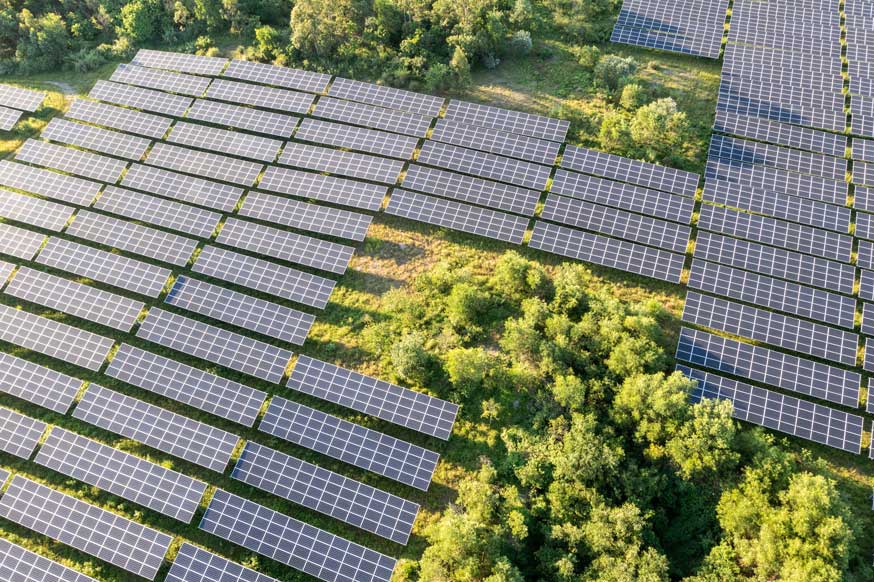Alternative energy, also known as renewable energy, has gained significant attention in recent years due to its potential to address some of the world's most pressing challenges, such as climate change and energy security. There are several reasons why investing in alternative energy companies is a good idea now—all of them we will discuss in this blog post.
A brief history of the development of alternative energy:
The development of alternative energy can be traced back to the early 1800s when French physicist Edmond Becquerel discovered the photovoltaic effect, which is the basis for solar power generation.
However, only after the 1970s alternative energy began to gain more widespread attention, mainly due to the global oil crisis and concerns about energy security. During this time, governments and businesses began investing in alternative energy research and development, leading to the development of new technologies and increased use of renewable energy sources.
A bit later, in the 1980s and 1990s, wind power and biofuels also attracted attention, as advancements in technology and increased investment led to greater efficiency and cost-competitiveness. During this time, government policies and incentives, such as feed-in tariffs and tax credits, helped to promote the growth of alternative energy industries.
The adoption of renewable energy sources also received a boost from the 2015 Paris Agreement, which set targets for reducing greenhouse gas emissions and promoting renewable energy use.
Today, alternative energy sources such as solar, wind, and hydropower are becoming increasingly cost-competitive and play an important role in the world's energy mix.
Overview of the benefits of investing in alternative energy.
Investing in alternative energy can provide several benefits for investors. Here are some of the key advantages of investing in alternative energy:
- Environmental Benefits: Alternative energy sources are derived from natural and renewable resources, such as the sun, wind, and water. Unlike fossil fuels, these sources do not produce harmful emissions or contribute to climate change, making them a sustainable and environmentally-friendly energy solution.
- Lower cost of production and operation: The cost of producing and operating alternative energy sources, such as solar and wind power, has decreased significantly in recent years. This has made alternative energy more cost-competitive with traditional fossil fuels and has increased the potential for profitability for alternative energy companies.
- Diversification of investment portfolio: Investing in alternative energy can provide diversification benefits to an investor's portfolio. Alternative energy investments are not as closely tied to the economic cycle as some traditional investments, such as oil and gas companies, which can provide a hedge against market volatility.
- Government support: Many governments worldwide are offering incentives and subsidies to promote the development of renewable energy sources. This policy support can provide a favorable environment for alternative energy companies to grow and thrive.
- Social impact: Investing in alternative energy can also have a positive social impact. It supports the development of sustainable and environmentally-friendly energy solutions that can benefit society.
As the world continues shifting towards sustainable energy solutions, alternative energy investments will likely become an increasingly important part of many investors' portfolios.
Types of Alternative Energy Investments.
There are several types of alternative energy investments that investors can consider. Here are some of the most common types:
Solar Energy: Solar energy involves capturing energy from the sun and converting it into electricity using solar panels. Investors can invest in companies that manufacture solar panels or those that operate solar farms and generate electricity. For example: JKS, SEDG, CSIQ
Wind Energy: Wind energy involves capturing and converting energy from the wind into electricity using wind turbines. Manufacturers of wind turbines or those that operate wind farms and generate electricity can be interesting as well. For instance: GE and CWEN.
Hydro Energy: Hydro energy involves capturing energy from moving water and converting it into electricity using hydroelectric power plants. Investors can invest in companies that operate hydroelectric power plants or manufacture hydroelectric equipment (Brookfield Renewable Partners L.P. BEP is an example).
Geothermal Energy: Geothermal energy involves harnessing the heat from the earth's core to generate electricity. Investors can invest in companies (like ORA) that operate geothermal power plants or manufacture geothermal equipment.
Bioenergy: Bioenergy involves using organic materials, such as wood, agricultural waste, and municipal waste, to generate electricity or produce biofuels. Companies (such as REX) that produce biofuels or operate bioenergy power plants have the potential and can be attractive to investors.
Energy Storage: Energy storage involves storing excess energy generated from alternative energy sources, such as solar and wind, and using it when demand is high. Investors can invest in companies that manufacture energy storage equipment or develop energy storage solutions. Examples: ENPH and ALB.
Risks and challenges of alternative energy investing.
While alternative energy investing offers many potential benefits, it also comes with risks and challenges that investors should be aware of. Here are some of the main risks and challenges associated with alternative energy investing:
- Technological Uncertainty: Alternative energy technologies are still relatively new and rapidly evolving. As such, there is uncertainty around the long-term viability and profitability of different technologies. Investing in a technology that becomes outdated or is surpassed by a more advanced technology could result in significant losses.
- Regulatory Risk: Alternative energy industries are heavily influenced by government policies and regulations, such as subsidies, tax credits, and emissions standards. Changes in regulations or the elimination of government support could negatively impact the profitability of alternative energy investments.
- Market Volatility: Alternative energy investments are subject to market volatility like any other investment. The prices of alternative energy stocks can fluctuate significantly in response to changes in market conditions, such as economic downturns or geopolitical events.
- Resource Availability: The availability of natural resources, such as sunlight, wind, and water, can impact the profitability and feasibility of alternative energy investments. For example, if a region experiences prolonged periods of low wind or sunlight, it can negatively impact the output and profitability of wind or solar power plants.
- Capital Intensive: Alternative energy projects, such as building wind or solar farms, can require significant upfront capital investments. This can be a barrier to entry for new companies or investors with limited capital.
Overall, alternative energy investing comes with risks and challenges that investors should carefully consider before making investment decisions. By conducting thorough research and due diligence, investors can identify potential risks and assess the viability and profitability of different alternative energy investments.
Conclusion and tips:
To maximize returns and mitigate risks, it's essential to:
- Diversify your portfolio;
- Monitor regulatory and policy risks;
- Keep up with technological advancements;
- Consider ESG factors and always check the latest news;
- Partnering with experienced professionals, such as investment advisors, asset managers, and other industry experts, can help you make informed investment decisions and mitigate risks.
By investing in alternative energy, we can contribute to a more sustainable future while also benefiting from potentially profitable investment opportunities.
Thank you for reading this blog post. Stay tuned for more.





